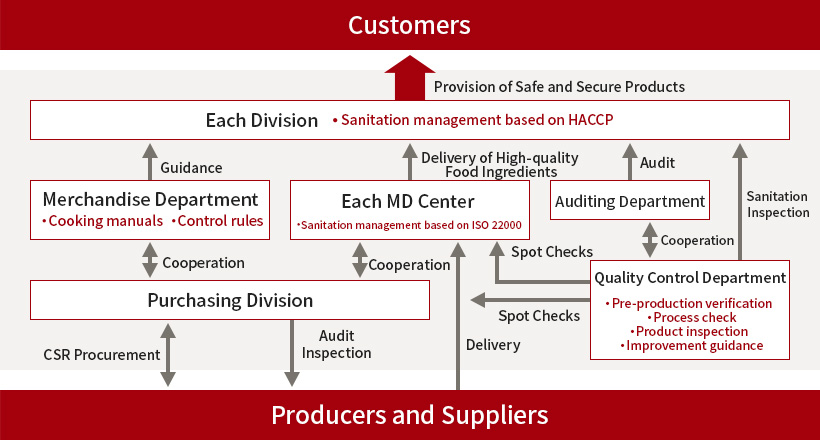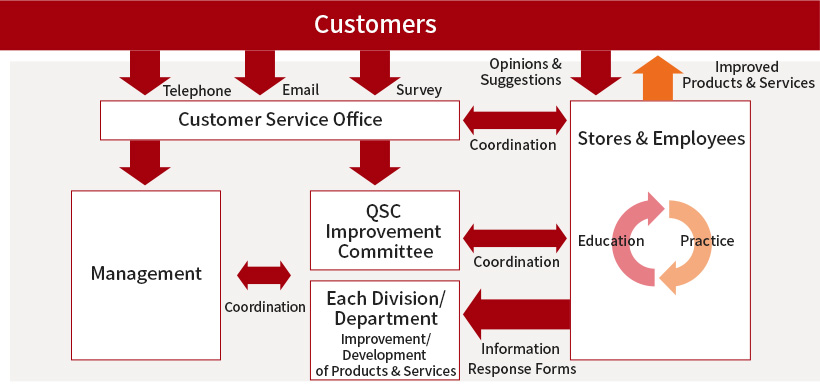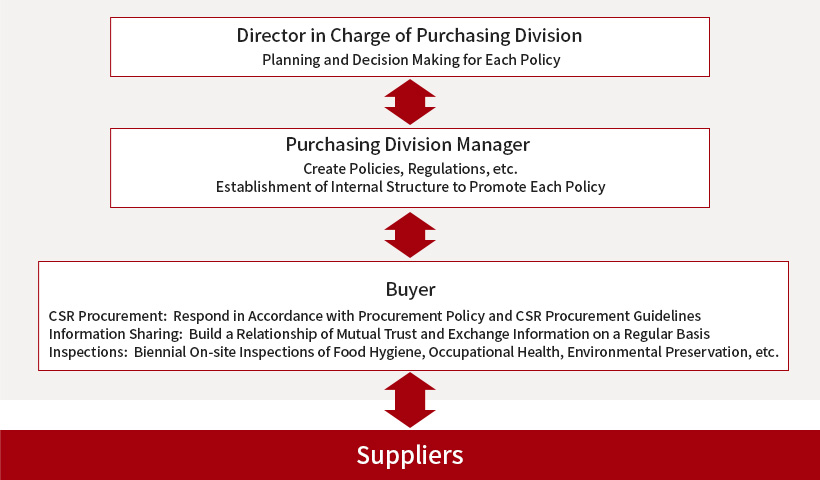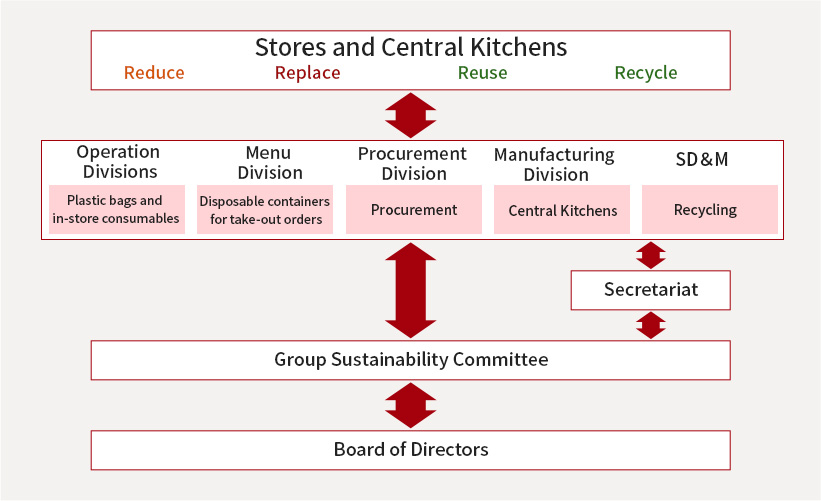Materiality
To realize a sustainable society and improve our corporate value through the provision of food and food-related services, based on our Sustainability Policy, we have identified our materiality from an analysis of their importance, for Skylark Group and for its stakeholders.
Steps in Identifying Our Materiality
STEP1 Identifying Issues
- From a single materiality perspective, we identify material issues for our business based on societal expectations such as the SDGs and assessment items from ESG rating agencies. Then, from a double materiality perspective, we identify issues that have a significant impact on society and the environment.
- Each division identified issues from their own business areas from a long-term perspective
STEP2 Ordering by Priority
Identified issues are then analyzed and prioritized based on their importance to Skylark Group and importance to its stakeholders.
“Importance to Skylark Group” is evaluated from the perspective of policies and strategies, social demands and issues to be addressed by capturing the nature of the business, and environmental and social considerations, while “Importance to Stakeholders” is evaluated from the perspective of trends in the world, stakeholders' expectations of the Company, and impact on the environment and society.
“Issues of Extreme Importance to Skylark Group.”
Food safety and security, responsible procurement, customer orientation, food loss reduction, decarbonization, nutrition, health maintenance and promotion, success and development of diverse human resources, improvement of working environment, DX, response to changing food preferences, health management, stable logistics.
“Issues of Very High Importance to Our Stakeholders.”
Food safety and security, responsible procurement, customer orientation, food loss reduction, decarbonization, plastic countermeasures, pollution prevention and environmental considerations, water conservation, biodiversity, education, child and forced labor.
*Scope of business activities considered: Operations, Products/Services, and Supply Chain
Stakeholders and scope of impact evaluated: Environment, Society, Consumers, Organizations within the supply chain

STEP3 Identifying Materiality
Prioritized issues are discussed by executives of relevant divisions and then deliberated at the Sustainability Committee before being determined as materiality and reported to the Board of Directors for approval.
In identifying the materialities, the company exchanged opinions with external stakeholders at executive study sessions and added “DX” and “biodiversity” to the list.
We review this same process every year and the materiality for 2025 is described below.
Skylark Group's Materiality and Risks/Opportunities
Goals based on Materiality Issues
The Sustainability Committee conducts an annual materiality analysis and reviews the materiality-based goals.

Initiatives on Materiality Issues and Evaluation Linkage
Compensation for the Company's directors (excluding outside directors and directors who are members of the Audit and Supervisory Committee), executive officers, and presidents of group companies consists of a fixed base salary and performance-linked compensation, the amount of which varies depending on the Company's performance and other factors. Performance-linked compensation consists of a financial bonus based on consolidated business results for each fiscal year, and compensation for which the existence of payment and the amount of payment are linked to the stock price during a certain period (“phantom stock”). Beginning with Phantom Stock in 2022, in addition to the stock price requirement, we are adding an evaluation by the international ESG assessment organizations of DJSI and CDP Climate Change as an ESG indicator, in addition to the above requirements, from 2024 we will add the achievement of “employee engagement target value,” “customer satisfaction target value,” and “CO₂ emissions reduction target value” as ESG indicators, and introduce a mechanism to link the promotion of our sustainability management and executive compensation.
In addition, KPIs related to materiality, such as decarbonization and food loss reduction, identified by the Sustainability Committee, are set for each executive officer and director (general manager level) in charge, and the achievement or failure of these KPIs is linked to individual evaluation. The evaluation of these KPIs influences the range of bonus fluctuation as well as the annual evaluation class of each individual. The KPIs set by each director are shared with the members of each department to promote their efforts.
Food Safety & Security
Promotion System

Customer Orientation
Promotion System

DX
Workstyle Reform
Responsible Procurement
Promotion System

Food Loss & Waste Reduction
Plastic Countermeasures
Promotion System

Decarbonization
Water Resource Conservation
Biodiversity